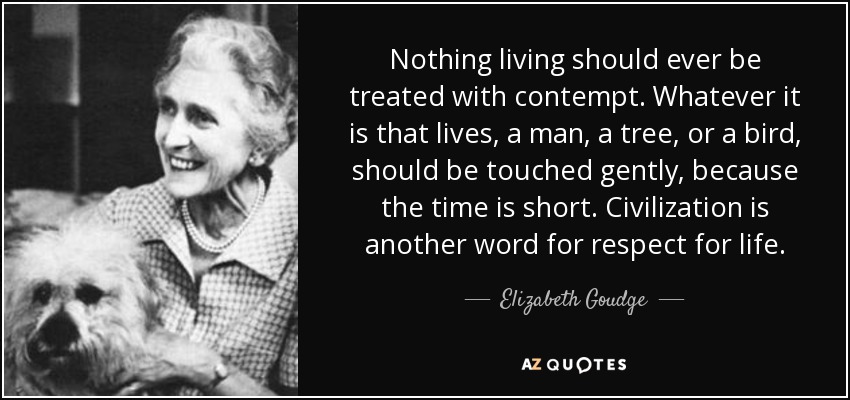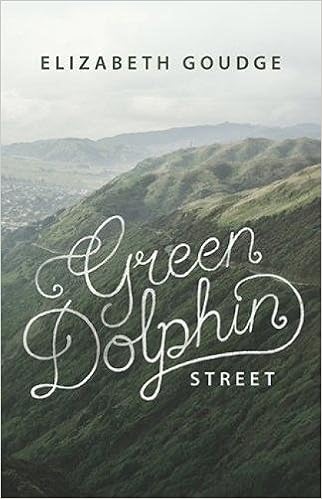I've read a good bit of Elizabeth Goudge now. Of her books I've read, two stick with me better than the others: Green Dolphin Street and The Scent of Water. As a reader, I look first and always for the author's voice and style; if I enjoy those it hardly matters what is written about, where it occurs, or who occupy the pages.

Goudge has mastery of all elements of writing however, and since I read her with the certainty that her lively, innovative voice sparkles no matter the book, I then look for my second-favorite element, setting -- location. The two books I mention had settings I grew to love, so I remember them best. Characters, in fiction, become shadowy images to me after I've closed the final page. I am too busy exploring and inspecting my way through the author's setting myself, hand-in-hand with her, to bother with her characters much.
Goudge lived from 1900-1984. She published The Joy of the Snow in 1974, a short autobiography because friends demanded it of her. That's what I'm reading now. Delightful as ever, she now entertains me with personal family tales, and I feel I get to know my friend better with each page. Her grandparents hailed from Guernsey, one of the Channel Islands that I've been so interested in lately.
 |
| Guernsey Island |
Goudge is humorous. She writes this book "to share, too, some of the conclusions I have come to about work and life. Neither will be in the least exciting and so my hope for this book is that it will be a good bedside book, and keep nobody awake." (2)
And this, about turning 70: "The Bible thinks you have about had it by then. And so you have. You have almost closed the circle and like a ship that has sailed round the world you see the last stretch of water narrowing at a startling pace. But the coast of the country to which you sail is obscured by the spray of breaking waves, and the rainbows in them show you the shapes and the colours of your own childhood. What the poets say is true. The beginning is the end and the end is the beginning." I would add that the end feels like home.
She can begin with a light-hearted joke and seamlessly move into a most deep and meaningful metaphor. Does life feel like an adventure? Is it also a circle? Do you feel the familiarity of an old home as you come near your end? What are those "spray and breaking waves" of the final shore that obscure your return to home? How many people have feared that landing, only to find at the end that they are right where they have wanted to be? Goudge does all of that by the end of page 2.
Perhaps I identify with this confession she makes: "As I look back on my life I realise that together with the beauty of the world that holds them, I have loved places too much and people not enough." (5) I know this in myself and fight against it. It's good to hear it admitted by another.
I have many more Goudge books to go, and how thankful I am that she worked to hard so keep us all happily reading!




















































